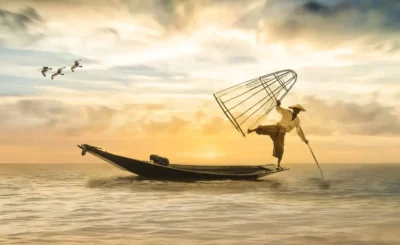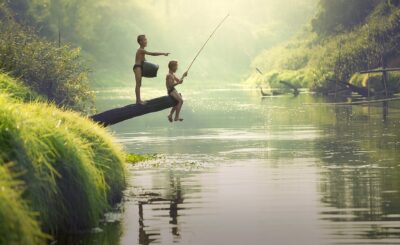Recreational fishing is a popular pastime enjoyed by millions of people around the world. Whether it’s casting a line in a serene lake or battling a big catch in the open ocean, fishing brings joy and excitement to anglers of all ages. However, the increasing popularity of recreational fishing has put a strain on fish populations and their habitats. It is crucial for anglers to practice conservation measures to ensure sustainable fishing for future generations.
The Role of Conservation in Recreational Fishing
Conservation in recreational fishing involves the responsible management of fish stocks and their habitats to maintain healthy populations and ecosystems. By practicing conservation, anglers can help protect fish populations from overfishing, habitat destruction, and pollution. Conservation efforts also play a vital role in preserving biodiversity and maintaining the natural balance of aquatic ecosystems.
Benefits of Conservation in Recreational Fishing
Conservation in recreational fishing offers a wide range of benefits, both for anglers and the environment. Some key advantages include:
| Benefits of Conservation | Description |
|---|---|
| Healthy Fish Populations | Conservation measures help ensure sustainable fish populations for future generations to enjoy. |
| Preservation of Habitats | Protecting fish habitats ensures the long-term health of aquatic ecosystems. |
| Enhanced Fishing Experiences | By conserving fish stocks, anglers can continue to enjoy quality fishing experiences. |
Conservation Tips for Anglers
As an angler, there are several ways you can contribute to conservation efforts while enjoying your favorite pastime:
Use Sustainable Fishing Practices
Practice catch and release, only keeping what you need and following size and bag limits set by local regulations. Avoid using lead sinkers and opt for eco-friendly alternatives.
Respect Fish and Their Habitats
Handle fish with care, minimizing stress and injury. Be mindful of fishing in sensitive areas, such as spawning grounds or marine protected areas.
Reduce Your Environmental Impact
Pick up trash and fishing lines to prevent pollution in waterways. Use biodegradable fishing gear and dispose of waste properly.
Conclusion
Conservation in recreational fishing is essential for the sustainability of fish populations and ecosystems. By practicing responsible fishing habits and supporting conservation efforts, anglers can help protect our marine resources for future generations to enjoy. Remember, every action you take as an angler can make a difference in preserving our natural environment.
Frequently Asked Questions
1. Why is conservation important in recreational fishing?
Conservation is crucial to ensure the long-term health and sustainability of fish populations and their habitats.
2. How can anglers contribute to conservation efforts?
Anglers can contribute by practicing sustainable fishing techniques, respecting fish and their habitats, and reducing their environmental impact.
3. What are some benefits of conservation in recreational fishing?
Benefits include healthy fish populations, preserved habitats, and enhanced fishing experiences for anglers.
4. What are some examples of sustainable fishing practices?
Examples include catch and release, using eco-friendly gear, and following local regulations on size and bag limits.
5. How does conservation in recreational fishing help preserve biodiversity?
Conservation efforts help maintain the natural balance of aquatic ecosystems, supporting a diverse range of fish species and other wildlife.
6. What are the consequences of overfishing in recreational fishing?
Overfishing can lead to depleted fish populations, ecosystem imbalances, and negative impacts on marine biodiversity.
7. How can anglers minimize their environmental impact while fishing?
Anglers can reduce their environmental impact by properly disposing of waste, using biodegradable gear, and avoiding fishing in sensitive areas.
8. What role do regulations play in conservation in recreational fishing?
Regulations help ensure sustainable fishing practices, such as size and bag limits, fishing season restrictions, and protected areas for marine wildlife.
9. How can anglers educate others about the importance of conservation in recreational fishing?
Anglers can share their knowledge and experiences with others, promote sustainable fishing practices, and participate in conservation initiatives and outreach programs.
10. What can anglers do to support conservation organizations and initiatives?
Anglers can donate to conservation organizations, participate in clean-up events, volunteer for habitat restoration projects, and advocate for sustainable fishing policies and practices.


